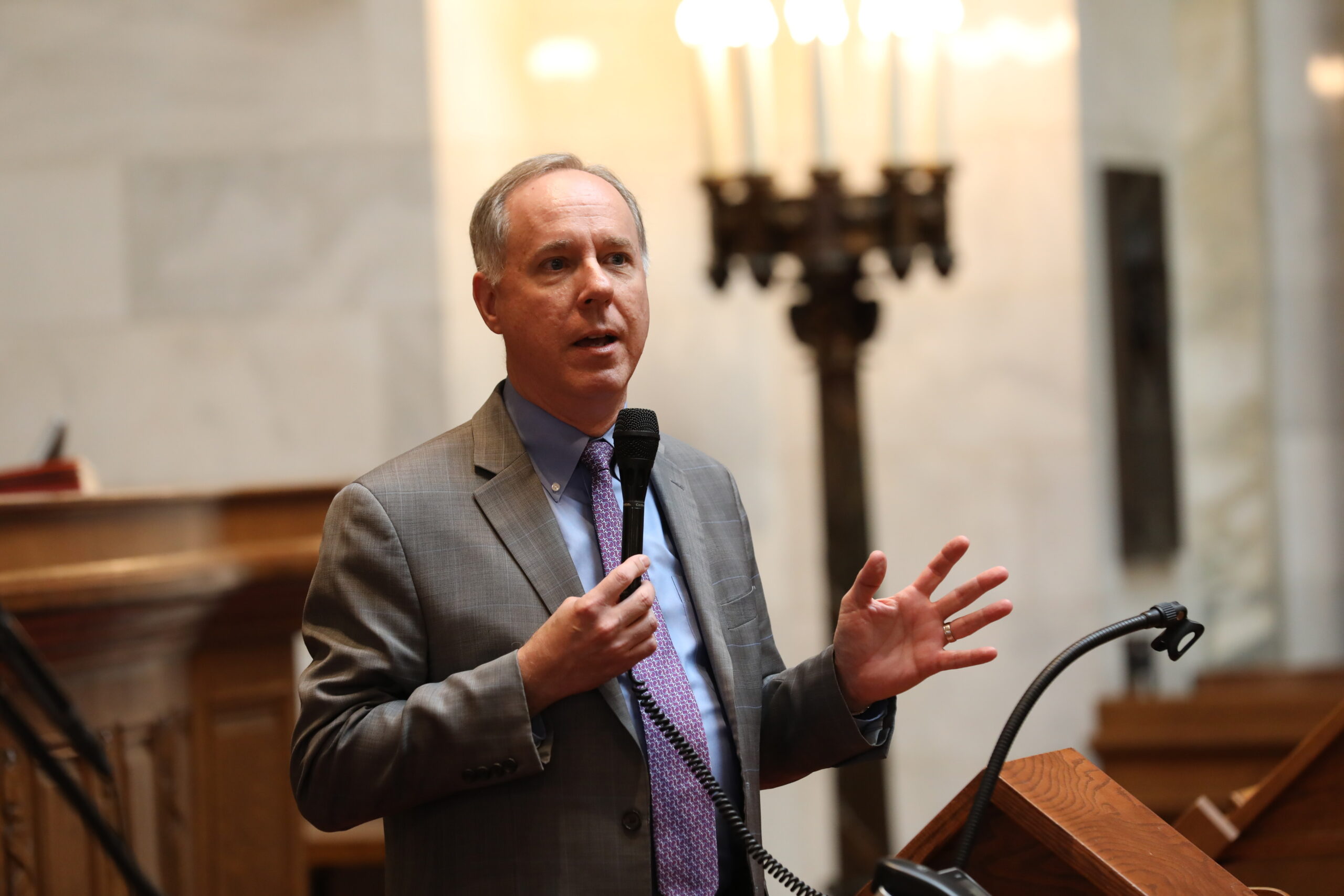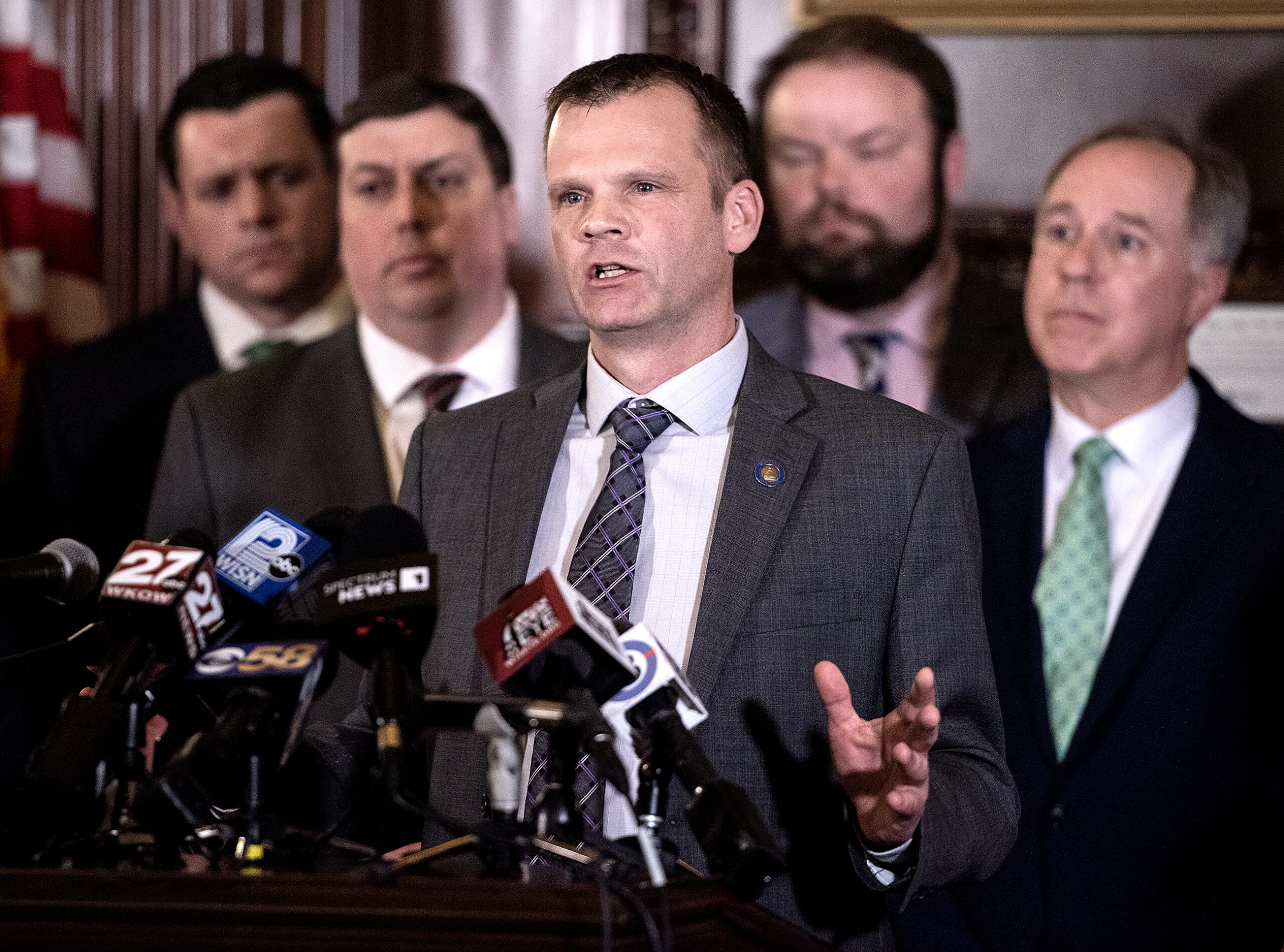A conservative think tank is saying Wisconsin should significantly cut its income tax to boost the economy and expand the sales tax in order to pay for it.
A Wisconsin Policy Research Institute study considered a few different mixes of tax cuts. It assumed an income and corporate income tax cut would give the state the biggest economic boon. The report’s authors then looked at a couple ways of offsetting the lost revenue. It decided against raising the current sales tax, and instead suggested expanding it to products that currently go untaxed.
Researcher Paul Bachman of the free-market Beacon Hill Institute said the changes would give Wisconsin a “competitive edge.”
Stay informed on the latest news
Sign up for WPR’s email newsletter.
“We’re not talking about cutting taxes,” said Bachman. “We’re talking about making all the government accounts whole. We’re talking about being revenue-neutral in the first year. But you can actually get a stimulus out of changing your tax mix without really causing any pain to the government sector.”
The WPRI report proposes expanding the state sales tax to 24 items that are not taxed now, including gasoline, legal services and food.
Jon Peacock with the Wisconsin Council on Children and Families said lower-income residents would feel the brunt of those tax hikes without much of the benefit.
“The plan will be a boon to relatively wealthy Wisconsinites, but is likely to raise taxes for most of the rest of us,” said Peacock.
Gov. Scott Walker has flirted with the idea of an income and sales tax swap, though he’s never introduced anything formally. Walker and Republican lawmakers have cut income and property taxes, though it’s not clear those moves gave the state a competitive edge. Comprehensive data from the Bureau of Labor Statistics has shown Wisconsin adding jobs slower than other Midwest states.
Wisconsin Public Radio, © Copyright 2024, Board of Regents of the University of Wisconsin System and Wisconsin Educational Communications Board.





